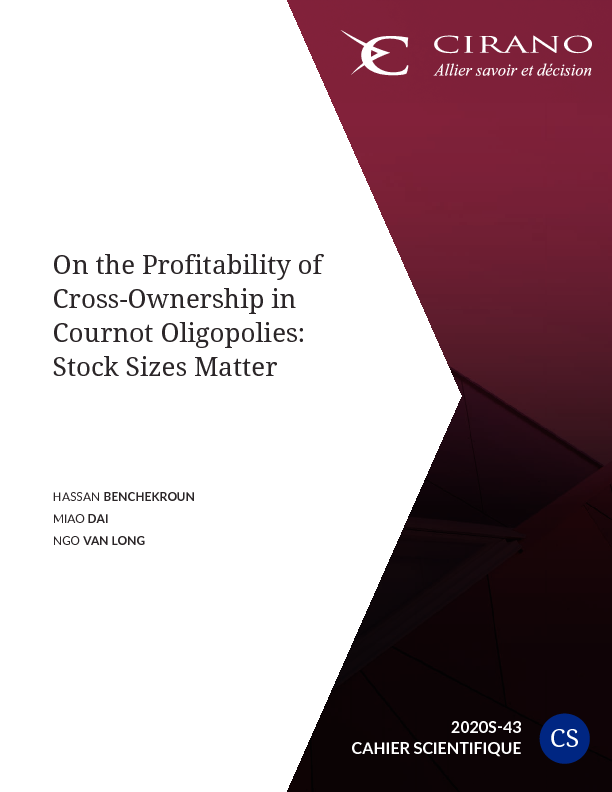On the Profitability of Cross-Ownership in Cournot Oligopolies: Stock Sizes Matter
We examine the profitability of cross-ownership in an oligopolistic industry where firms compete as Cournot rivals. We consider a symmetric cross-ownership structure in which a subset of k firms engage in cross-shareholding and each firm has an equal silent financial interest in the other firms, while the remaining (n – k) firms stay independent. We show that a symmetric cross-ownership is never profitable for any levels of non-controlling minority shareholdings if the participation ratio (k/n) is less than or equal to (n+1)/(2n), while there exists a large range of cross-ownership for which it can be profitable beyond that participation ratio. This result may be called a cross-ownership paradox, analogous to the merger paradox. With the presence of stock constraints, however, we find some of the results from the cross-ownership paradox do not carry over to the case of non-renewable resource industries. The profitability of a symmetric cross-ownership can be positive even when the participation ratio (k/n) is less than or equal to (n+1)/(2n) and is always positive when the participation ratio (k/n) is greater than (n+1)/(2n), provided that the initial resource stock owned by each firm is small enough. We also highlight that cross-ownership can be preferable to a horizontal merger under Cournot competition. Not only is it more profitable to do so, more importantly, it constitutes a shrewd strategy to avoid possible legal challenges.




